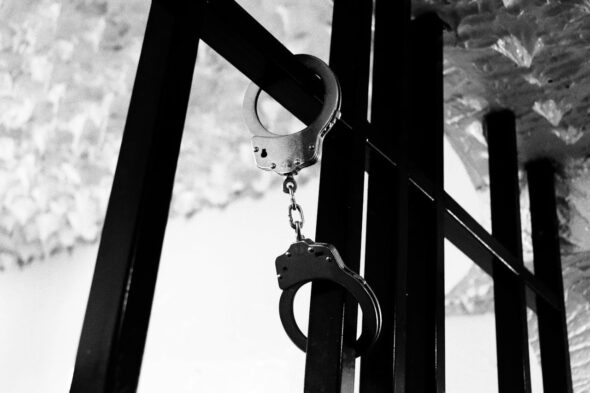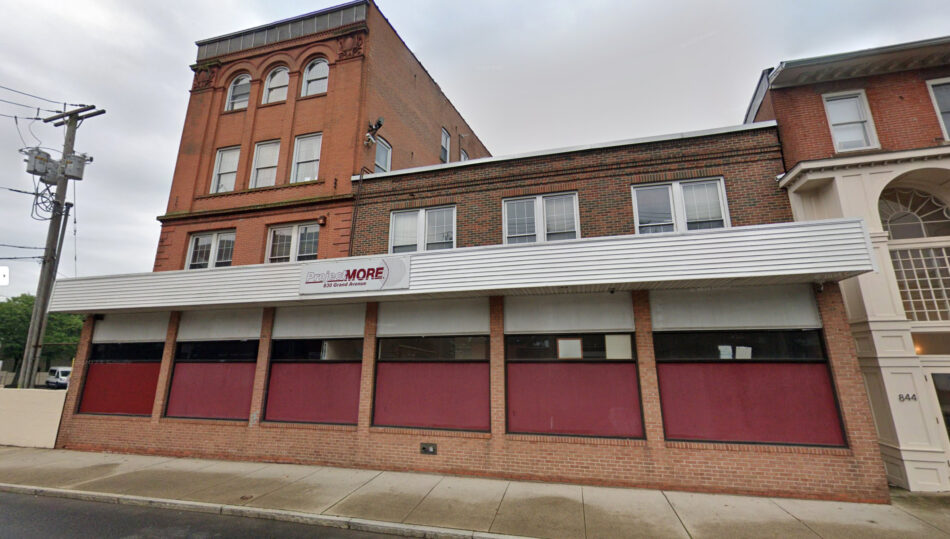In the election, both Donald J. Trump and Vice President Kamala Harris have encouraged people to vote. One group of people — those who were formerly incarcerated — usually cannot because of disenfranchisement laws, which restrain these groups from voting.
But as of June 2021, felons in the state of Connecticut can vote.
That month, the Connecticut state legislature passed Public Act No. 21-2, which restored voting rights to convicted felons who are either on parole or probation.
Non-profit organizations like Project M.O.R.E. in New Haven, are dedicated to helping recently incarcerated people back into society, including voting. When clients enter the brick building on the corner of Grand Avenue and Jefferson street, they receive a warm greeting, including a “Welcome Home” from prepared case managers.
Keisha Gatison, the program director of the Reentry Welcome Center within Project M.O.R.E., said that the organization provides many resources for each client. The organization receives specific information about clients before they are released, she said. Gatison and the case managers learn a bit about what their needs are and some solutions to navigate the client to feel like he or she is a part of society.
”They may need housing, access to mental health,” Gatison said. “96 percent of them need employment. They might just need clothes on their back.”
A part of the re-entry process is getting the formerly incarcerated registered to vote, thanks to the 2021 bill. Gatison and the case managers typically give their clients the option to register. But they often run into issues. Some clients don’t believe they can vote, some don’t have photo identification, and others don’t have an address to put down.
”Some of them are shocked that they even have the right because it’s not really told to them that they can actually vote,” Gatison said.

(Photo courtesy of Mehmet Akif Gunduz / Pexels.)
Arthur Kapusta, a client of Project M.O.R.E., currently lives in a halfway house. He is technically incarcerated, but still has the ability to vote.
“As a convicted person, there are many walls that you have to go through,” said Kapusta. “And the problem being is, even though there’s avenues to go, they don’t lay them out there for you.”
Kapusta added that one of the issues he faces is not having a renewed driver’s license.
But Gatison found a solution. His name was Anderson Curtis, a formerly incarcerated man who now works with the American Civil Liberties Union (ACLU) of Connecticut. Curtis leads seminars for Project M.O.R.E clients. He informs them about their right to vote, and helps them register.
“I’m a tool in this whole process, and my job is to keep banging the drum,” said Curtis. “Keep finding ways to invite people in, keep adding people to the conversation, keep expanding the conversation.”
Curtis said the impact of disenfranchisement laws on formerly incarcerated people is what holds them back from feeling a part of society. These barriers include unemployment and housing, he said. He felt that the passing of the 2021 bill is an advancement, but that the real policy was not written in a law.
“The only real policy is in the community and between people, people actually welcoming people home,” Curtis says. “This is where the real change has to happen.”
Outside of Project M.O.R.E., Curtis speaks at other reentry centers, halfway houses, churches, legal women voter organizations and to legal conservation voters. He also assisted in conducting voter registration inside a prison with the Secretary of State’s office. They registered 28 men to vote, due to them being unsentenced.
Gatison also shared that the Reentry Welcome Center is taking the initiative to bring their clients to get or renew their identification cards so they can vote. This way, voting is easy for those like Kapusta.

(Photo courtesy of Tara Winstead / Pexels.)
There are 23 other states in the same predicament as Connecticut in allowing felons to vote after being released, according to the National Conference of State Legislatures (NCSL). In 15 states, felons lose their voting rights during incarceration, and for some time after during parole or probation. In 10 states, felons lose their right to vote indefinitely for certain crimes or require a pardon from a governor. In three states — Vermont, Washington D.C. and Maine — felons never lose their voting rights, meaning they can vote in prison.
As for the 10 more restricted states, which are vastly different due to losing voting rights indefinitely, each has its own rules. In Florida, voting rights were restored in 2018 for some felons, excluding those convicted of murder or a sexual offense. In Connecticut, the type of crime does not matter.
Voting does not come so easy for formerly incarcerated Floridians. They have to fulfill each component of their sentence, like paying fines, to obtain their voting rights. The Sentencing Project, a nonprofit organization that endorses restoration of voting rights for felons, estimates that about 730,000 Floridians who have completed their sentences still remain unable to vote because of the state’s law.
The organization also shared that Florida is the nation’s “disenfranchisement leader in absolute numbers, with over 961,000 people currently banned from voting,” according to a written report.
Despite the restrictions, CNN reported that the amount of formerly incarcerated felons with the ability to vote can sway elections. Extremely close elections, such as the state of Texas where Senator Ted Cruz won only by 3 percentage points, are one example.
As this close election nears, it’s possible that the formerly incarcerated could cause a shift.
Actively voting in smaller elections can also shift results. The state of Connecticut does not provide funding for organizations like Project M.O.R.E., which relies solely on donations and grants.
“If we don’t receive consistent funding, our clients are no less homeless, they are no less unemployed,” Gatison said. “If we’re on the state budget every year, we have renewed funding.”
Gatison described the importance of the Project M.O.R.E. clients, as well as the other non-profit reentry organizations, to vote locally.
“Them actually being able to vote and put people in office who are going to give them more access to resources, ” Gatison said. “I think it is imperative and I am excited for them.”
She looked forward to election day.
“I’m hoping that we get a good number on election day that will walk down to city hall and vote with us,” she said.



